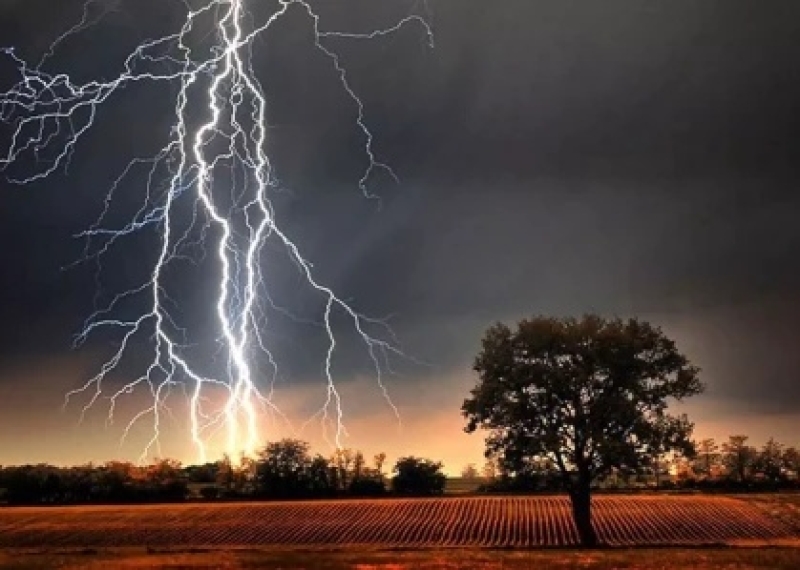- Israel Strikes Tehran with US Support Amid Nuclear Tensions |
- India Sees 9% Drop in Foreign Tourists as Bangladesh Visits Plunge |
- Dhaka Urges Restraint in Pakistan-Afghan War |
- Guterres Urges Action on Safe Migration Pact |
- OpenAI Raises $110B in Amazon-Led Funding |
How to stay safe during lightning season

Lightning strike
Dhaka, Apr 30 -Lightning strikes have emerged as one of Bangladesh’s deadliest natural disasters due to environmental degradation and a lack of awareness.
From 2011 to 2020, at least 2,164 people died from lightning strikes across the country, according to the Ministry of Disaster Management and Relief.
The Bangladesh Meteorological Department estimates an average of 250 fatalities annually from lightning strikes.
On Monday, lightning strikes killed 11 people and injured three others in six districts: Cumilla, Kishoreganj, Shariatpur, Habiganj, Chandpur, and Netrakona. Four of the deaths were reported in Cumilla, three in Kishoreganj, and one each in the remaining districts.
Lightning strikes are most common between April and June, especially in flatlands and haor (wetland) regions.
In response to the increasing toll, the government declared lightning a national disaster in 2016.
Here are a set of safety guidelines to reduce the risk of death and injury:
• Stay indoors during lightning storms, which typically last 30–35 minutes. Only go outside if absolutely necessary, and wear rubber-soled shoes for protection.
• Avoid open fields. If caught in one, squat low on your toes with fingers in your ears — a position that reduces risk.
• Take shelter in concrete buildings, avoiding rooftops and high ground.
• Keep children indoors and prohibit outdoor play during storms.
• Steer clear of tall trees, electric poles, and mobile towers — these are often struck by lightning.
• Do not fish from boats without a shed, and avoid rivers or seas during lightning storms.
• Inside vehicles, ensure no part of your body touches any metal components.
• If someone is struck, they can be safely touched. Immediate first aid, including CPR and artificial respiration, can save lives if administered quickly. Victims should be rushed to the hospital without delay.
Experts stress that greater public awareness and adherence to safety protocols are crucial to reducing the death toll from lightning strikes — a preventable tragedy that continues to rise in Bangladesh. - UNB

